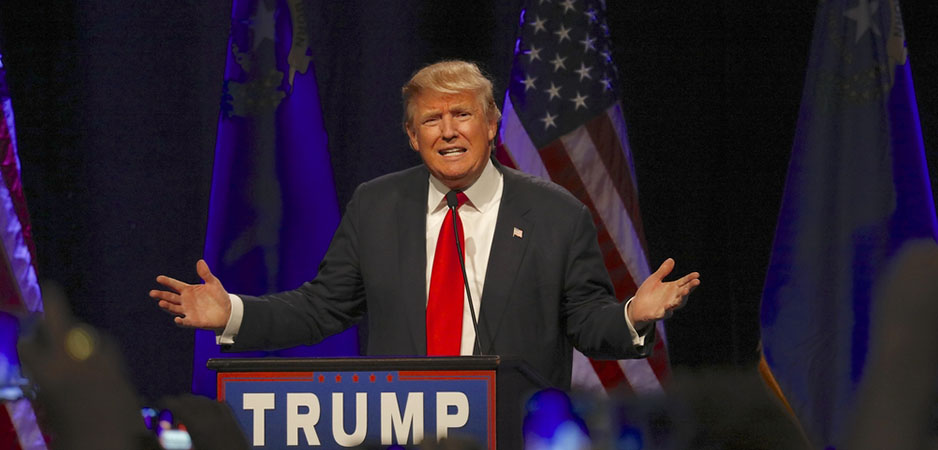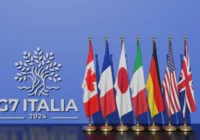The age of Trump can be defined as the moment when inarticulate discourse became the articulator of US values. The Daily Devil’s Dictionary explains.
The trauma of the 2016 presidential election has left Americans in a state of deepening confusion about the very nature of their society and the role of democratic politics, which has become increasingly confused with both entertainment and sports. Analyzing the prospects for the 2020 election, The Guardian cites Republican cheerleader Newt Gingrich: “Trump is the natural articulator of the conservative part of American society and he arouses hostility from the left but that’s also why he has such strong support on the right.”
Here is today’s 3D definition:
Articulator:
A person who turns one or more complex or simply impossibly muddled ideas into a discourse that a significant group of people end up believing is coherent
Contextual note
The definition implies there are good articulators as well as bad ones. A good articulator respects the complexity of the ideas to be articulated and finds a way of making their internal logic apparent. A more common species of articulator is the demagogic articulator who combines half-baked ideas with raw emotions and repackages them as a set of simple repetitive slogans designed to mobilize crowds. Gingrich explains: “We have a president willing to actually stand up for our values.” By “our values” he precisely means slogans and half-baked ideas people have been conditioned to get emotional about.
Donald Trump may be “the natural articulator of conservative” America, but he has never been articulate. Americans spend an inordinate amount of time trying to guess how his stated intentions might translate into policy. Reacting to the crisis provoked by the disappearance of journalist Jamal Khashoggi, he promised “severe punishment” for Saudi Arabia but indicated he wasn’t ready to cancel orders for weapons. He then added that “there are other ways of punishing, to use a word that’s a pretty harsh word, but it’s true.”
What is Trump articulating here? Can the man who promised to obliterate North Korea with “fire and fury” and who blithely imposes crippling sanctions not only on his latest designated enemy, but also on allies that have normal relations with his enemies consider “punishing” a “harsh word.” We sense that the idea of punishing his trusted friend (and certified despot) Mohammed bin Salman (MBS) would be harsh, not the idea of punishment itself.
Trump subsequently clarified his meaning as this Reuters update reports: “[T]he United States would be ‘punishing’ itself by halting military sales to Saudi Arabia even if it is proven that Saudi journalist Jamal Khashoggi was killed.” Murderers who pay are friends and it is the duty of the United States to supply further means of murder to a murderer who is willing to pay. You can’t argue with cash, and murder by friends means jobs.
So if the US isn’t canceling business and imposing sanctions, what could the punishment be? All Trump will reveal is this: “There are other things we can do that are very, very powerful, very strong and we’ll do them.” Might Trump be ready to place the blame directly on MBS, rather than the regime, and sacrifice his favorite accomplice thereby helping the Saudis — who are deeply unhappy with the crown prince’s leadership — marginalize MBS or simply remove him from power? The suspense continues. The “probable” next scene has been announced: “Trump said he would probably speak to Saudi Arabia’s King Salman over the weekend ‘because I think it’s appropriate for me to ask him what’s going on.’”
Historical note
Over recent decades, politics has progressively been “rearticulated” in the United States not only to emulate entertainment and sports, but also as religion. Americans “consume” politics the same way they consume programs on TV, and both Republicans and Democrats are expected to worship at the altar of their party.
Politics functions like a faith. It gives people something to believe in. In ancient Athens, the polis (from which the word politics is derived) was the city-state, a large group of people interacting and sharing the same environment. They were collectively responsible for making it livable. Politics implied the group’s governance and the involvement of citizens as citizens, not as spectators or consumers.
The religious element of politics in the US has always existed, but has consistently wavered between two poles. The first was the Deism or “natural religion” of the founders. In the Declaration of Independence, Thomas Jefferson invoked “the Laws of Nature and of Nature’s God” and the claim that men “are endowed by their Creator with certain unalienable Rights.” The second harkens back to the Puritans’ “new Jerusalem” and, decades after the declaration, to the “awakened” Christian fundamentalists who even today literally believe that God, having picked his favorite, blessed and continues to bless their nation alone.
Gingrich alludes to this when he proclaims, “Trump is reshaping the courts at remarkable rates and he’s doing so from the standpoint of conservatives who believe in the American constitution.” Does the US Constitution require belief rather than understanding? Other nations appeal to the authority of their constitution to articulate current issues not specifically mentioned in their founding document. Only in America do “right-thinking people” (i.e., conservative) treat their Constitution as an object of religious belief, a holy relic, the word of God.
But Gingrich hasn’t forgotten the other key point, that politics follows the same logic as spectator sports. Citing The New York Times and CNN, Newt Gingrich tells us Trump is “in a war with them. They are the other team.” For thinkers like Gingrich, war itself is a sport.
In the US, entertainment, sports and religion have colonized politics, enabling a reality TV show host and a real estate shyster to become not only president of the United States, but also the inarticulate “articulator” of the dominant wave of thoughtless opinion that claims the theological authority to define American political values.
*[In the age of Oscar Wilde and Mark Twain, another American wit, the journalist Ambrose Bierce, produced a series of satirical definitions of commonly used terms, throwing light on their hidden meanings in real discourse. Bierce eventually collected and published them as a book, The Devil’s Dictionary, in 1911. We have shamelessly appropriated his title in the interest of continuing his wholesome pedagogical effort to enlighten generations of readers of the news.]
The views expressed in this article are the author’s own and do not necessarily reflect Fair Observer’s editorial policy.
Support Fair Observer
We rely on your support for our independence, diversity and quality.
For more than 10 years, Fair Observer has been free, fair and independent. No billionaire owns us, no advertisers control us. We are a reader-supported nonprofit. Unlike many other publications, we keep our content free for readers regardless of where they live or whether they can afford to pay. We have no paywalls and no ads.
In the post-truth era of fake news, echo chambers and filter bubbles, we publish a plurality of perspectives from around the world. Anyone can publish with us, but everyone goes through a rigorous editorial process. So, you get fact-checked, well-reasoned content instead of noise.
We publish 2,500+ voices from 90+ countries. We also conduct education and training programs
on subjects ranging from digital media and journalism to writing and critical thinking. This
doesn’t come cheap. Servers, editors, trainers and web developers cost
money.
Please consider supporting us on a regular basis as a recurring donor or a
sustaining member.
Will you support FO’s journalism?
We rely on your support for our independence, diversity and quality.






